Text


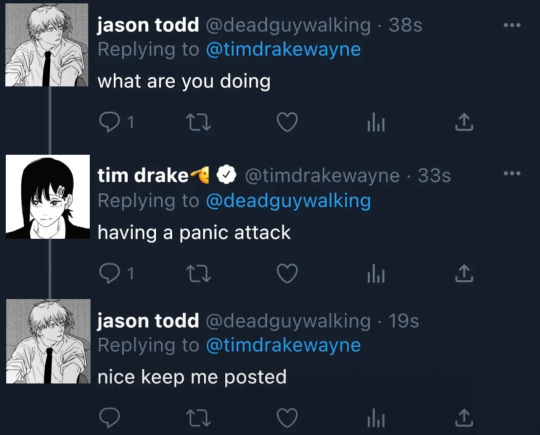
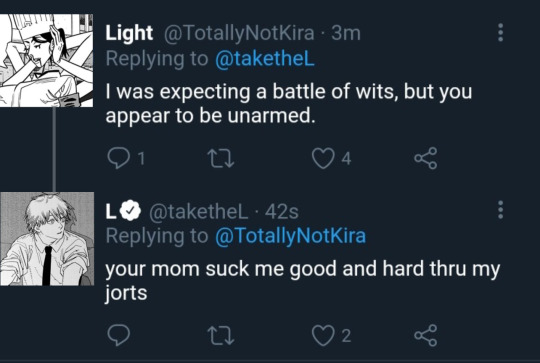






*slides some chainsaw man characters as internet funnies across the table* for you, my good man (part twelve)
part one part two part three part four part five part six part seven
part eight part nine part ten part eleven part thirteen
741 notes
·
View notes
Text


Superhero logic be damned I'm surprised Asa hasn't connect the dots based off personilty alone lol
731 notes
·
View notes
Text






asa mitaka icons woo!!!@ i havent watches csm animated YET but i know from some previews they did a pre good job so kudos👍 anywya i was rereading csm prt2 and yeah here u go
35 notes
·
View notes
Text

Holy fuck, HOH: Chainsaw man griddy
3 notes
·
View notes
Text
So like, what do y'all think Fakesaw Man's Devil form looks like?
0 notes
Text
Chainsaw Man only exists through you
The principle is simple with Chainsaw Man: there are no revelations. The keys to understanding are to be found in the previous chapters. That's why, to get the most out of your reading experience, you need to keep rereading this work.
This chapter is just a condensed answer to the question that Part 2 sets out to answer:
Who is Chainsaw Man ?
Let's take this chapter apart, because nothing is left to chance.
First of all, Fujimoto reminds us that Denji is a spectator of his own reputation, that he doesn't use or instrumentalize it, unlike Fake!CSM, which relies on it.

Since the beginning of the manga, Chainsaw Man has been a controversial figure, but this point is shown more clearly in part 2, notably through the adoration young people have for him, making him a hero, and the fact that he is a dangerous demon for older people. In just two pages, this framework is recalled.

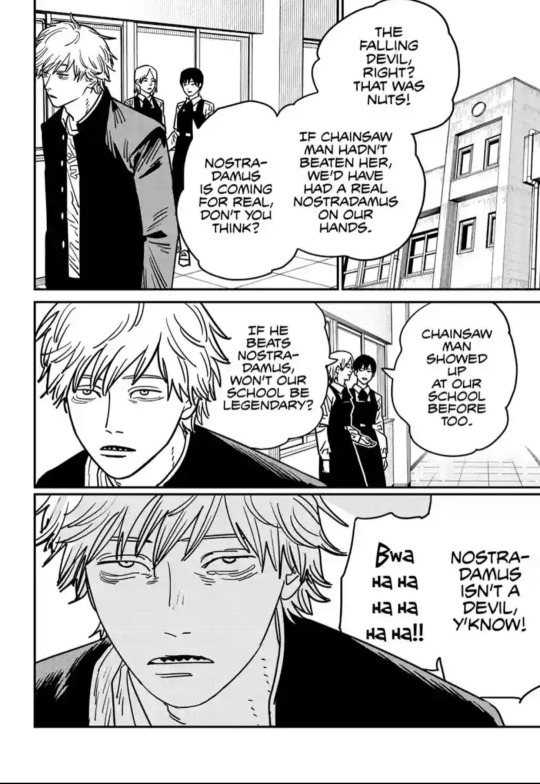
He's not only a scapegoat (he's blamed for actions for which he's not responsible = the buildings are the result of the falling demon, and the disappearance of the aquarium is Asa's doing).

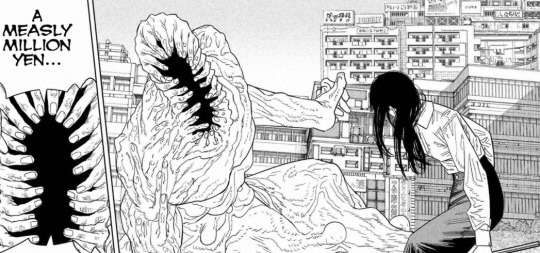
But young people also trust him blindly. The two high-school girls don't take Nostradamus's prophecy seriously, to the point of mistaking the man of the cloth for a demon, as if they'd been passively listening to the news, not taking the threat seriously.
This shows that Chainsaw Man is a figure, a reference point for society, on which it holds its balance. An image that fuels debate while channeling concern.
Moving on... The next pages are just as interesting for their staging. Because TV is never shown. Denji focuses solely on the Nayuta he looks after, as if convinced that she is his sole objective.
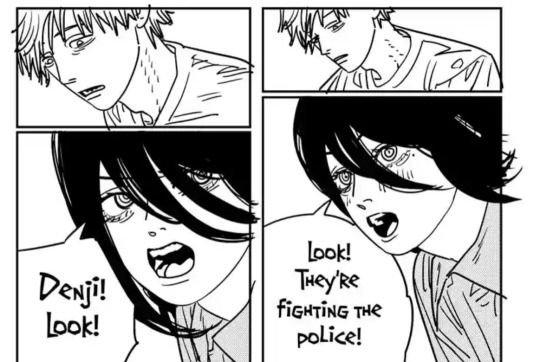

Nor is it insignificant that Nayuta, Makima's reincarnation, is the one who challenges this dream of normalcy.
For symbolically, her former self was the one who exploited this dream to manipulate for Denji. For me, the closer focus on Nayuta, who repeats her question, serves to emphasize that her very existence is the answer. Not only did Makima dream of normalcy too, but it was Denji's realization that he could afford to raise her standards that enabled him to fight her while saving her.

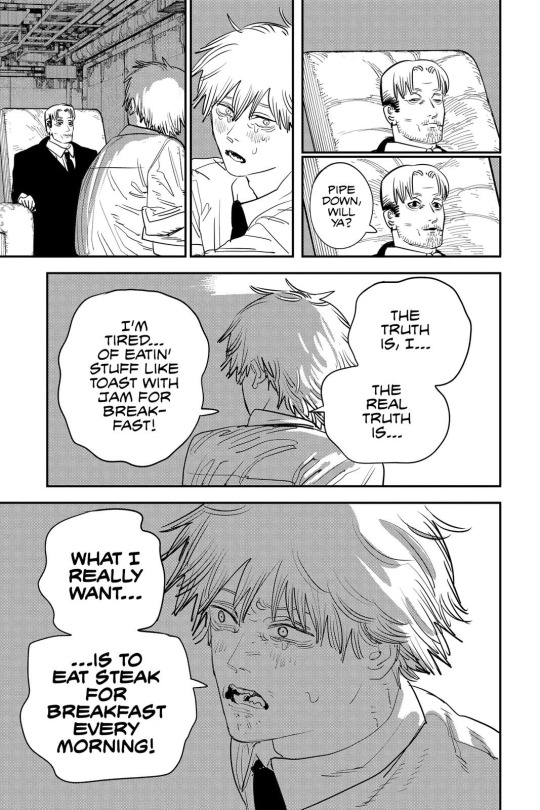
Let's go forward two more pages. Once again, not a single detail is insignificant. Meowy and the toilet make sense because they refer to a specific scene.
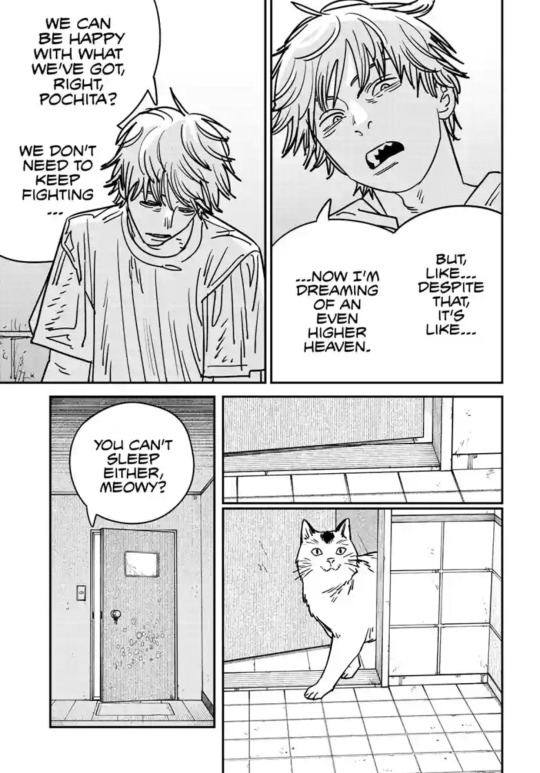
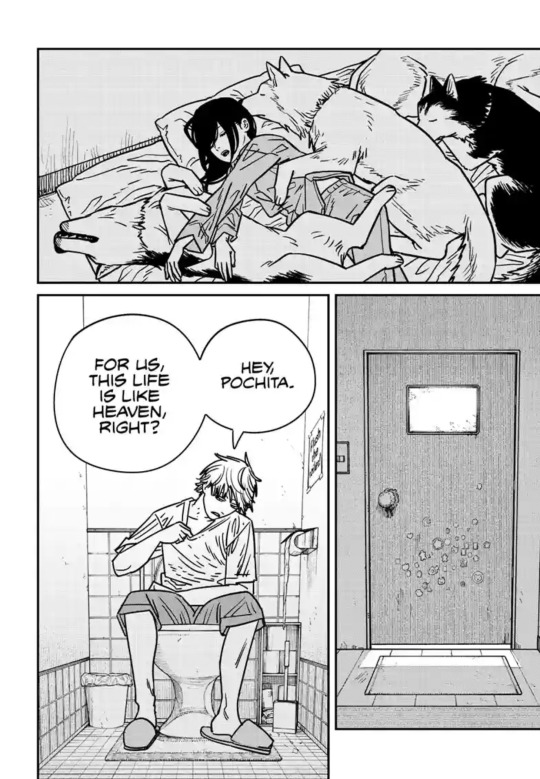
Power had promised Denji to touch her breasts if he saved her cat, the fulfillment of a venal dream that Denji had defended to the bat demon as a valid dream. However, it was at this point that Denji experienced his first existential crisis.
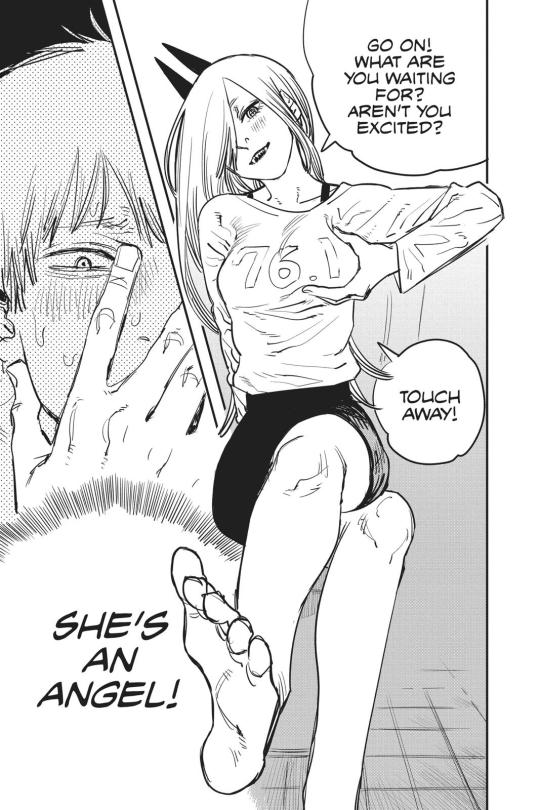
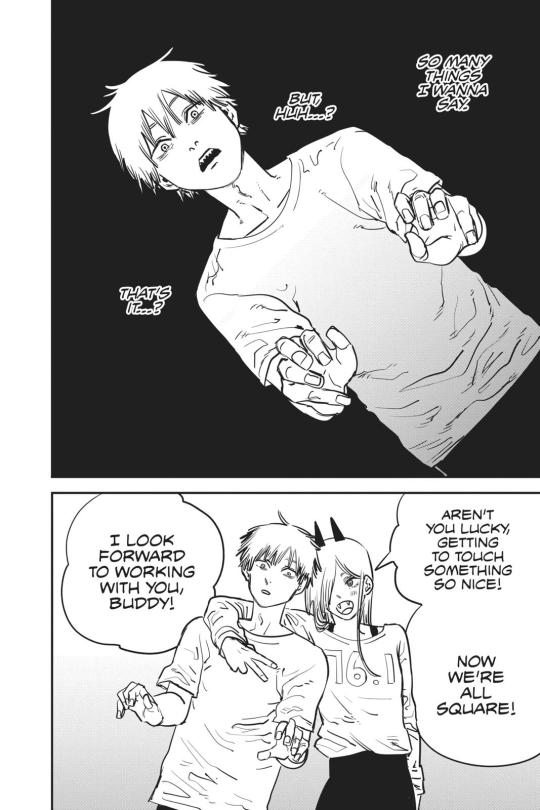
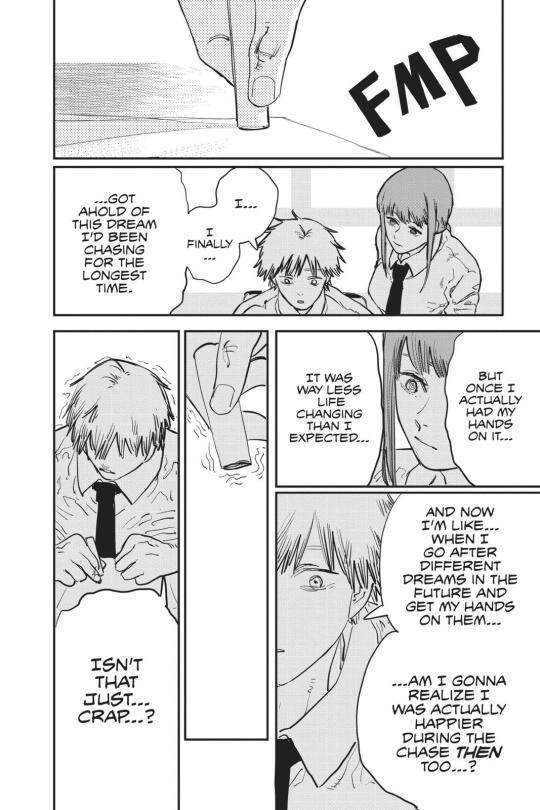
A dream is a way of projecting oneself. The more little things you dream, the quicker they come true, and the more aimless you become. This is what follows Denji throughout Part 1, the absence of meaning. What he finds in the love of his peers.
Denji also confirms his dream in the way he zaps TV shows. Banalities bore him, and magnetically, he can't help but follow the shows that are about him. Once again, Chainsaw Man is on the other side of the TV, a spectator.
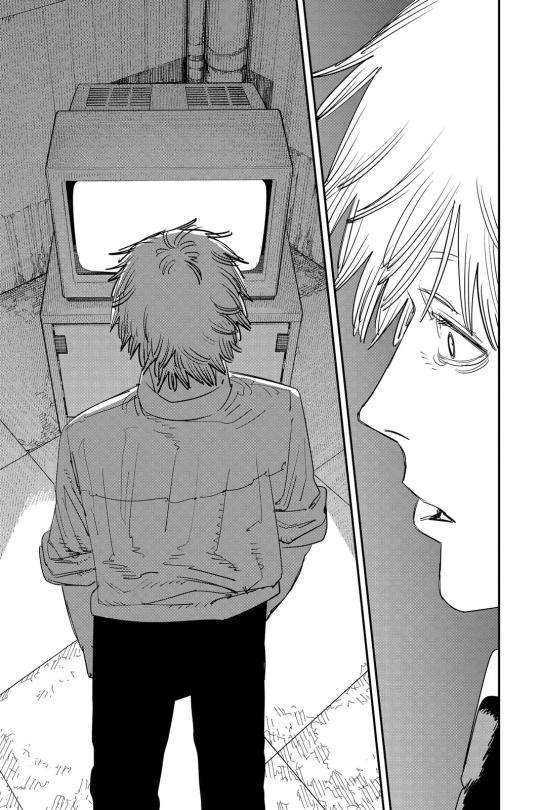


But the page I find ABSSOLUTELY brilliant is here, the clearest answer to who Chainsaw Man is, or rather how he came to be, is here.


These are the people who created Chainsaw Man. When Denji fights, he simply follows his instincts, not pursuing great causes. It's the people who decided to make him a scapegoat for everything that's wrong with him, the people who decided to make him a hero.
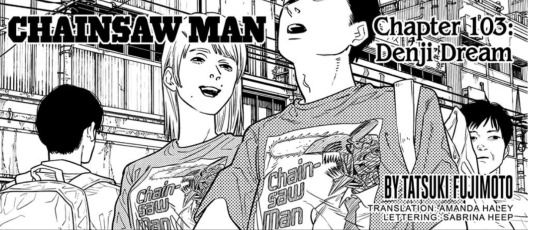
Chainsaw Man is just a machine that constantly dies and suffers, scaring away demons and bringing humans closer together. He's a figure who can't make up his mind by choice, because he's diffuse. These are the people who made Denji Chainsaw Man. In other words, the choice is not his to make.
That's why fake!CSM is profoundly an imposter.
Becoming an actor with his face uncovered, instrumentalizing the attention of humanity, speaking to it orally as such, is not Chainsaw Man.

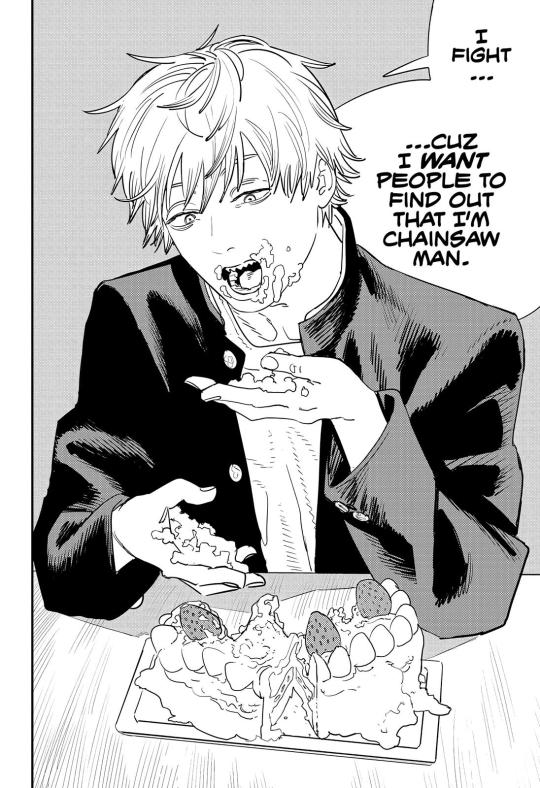
Declaring one's goals and demands is not Chainsaw Man, since it's the public that finds them (which is also what I literally do). Involving the demon of justice when Yuko is the first to understand that having nice ideals isn't enough to become like Chainsaw Man is dishonest. Fake!CSM is Yuko's assassin, the first to understand CSM is ironic.
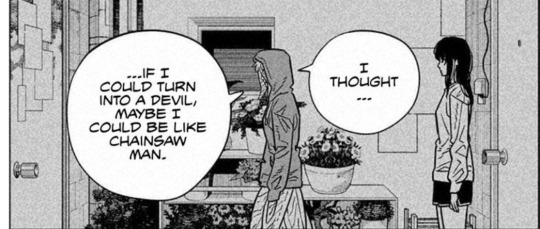
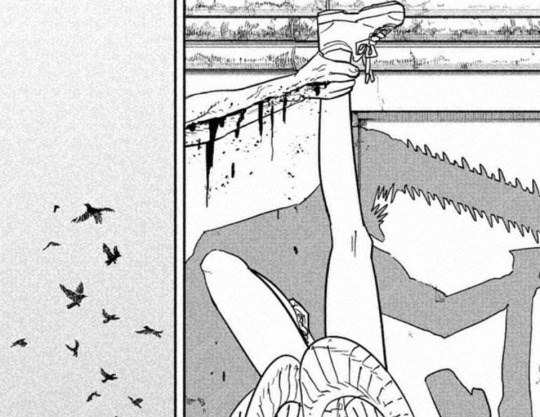
Fake!CSM is there to sweep away the essence of Chainsaw Man, who is not an embodied being. Chainsaw Man is a feeling, whether of anger or admiration. He's something more diffuse and immaterial than he appears, transcending Denji himself.
Chainsaw Man is at once this television, this audience, these arguments, these demonstrations, this gossip in the corridors.
So Denji is more Chainsaw Man than impostor.


385 notes
·
View notes
Text
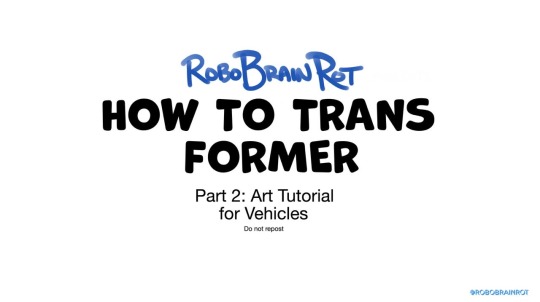

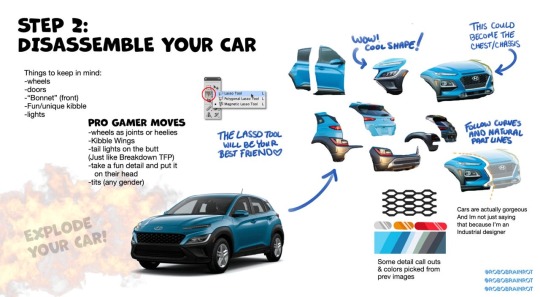
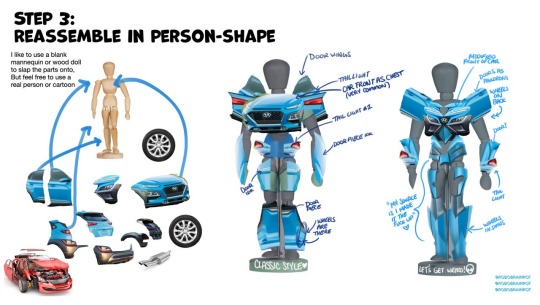


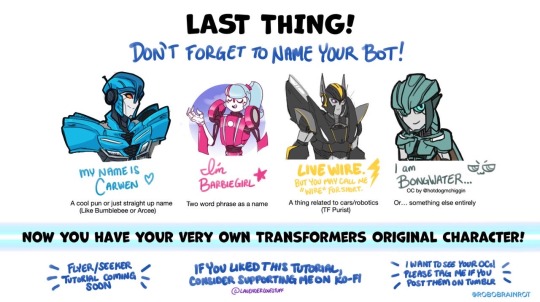
How to Transformer: Part 2
Vehicle Art Tutorial
Featuring @littleyarngoblin's car; Carwen 🚙
Featuring @hotdogmchiggin's OC: Bongwater
Flyer Art Tutorial coming soon!
Ko-fi
2K notes
·
View notes
Text
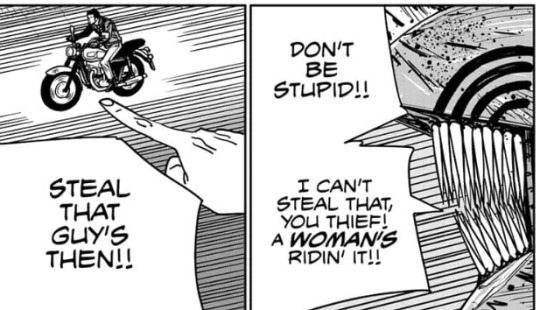

Denji is an upstanding citizen
152 notes
·
View notes